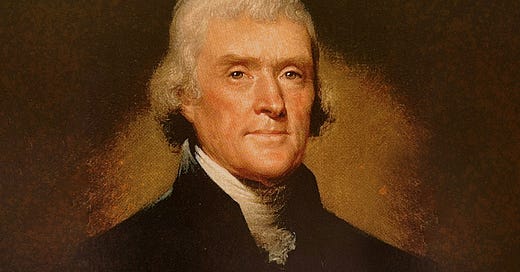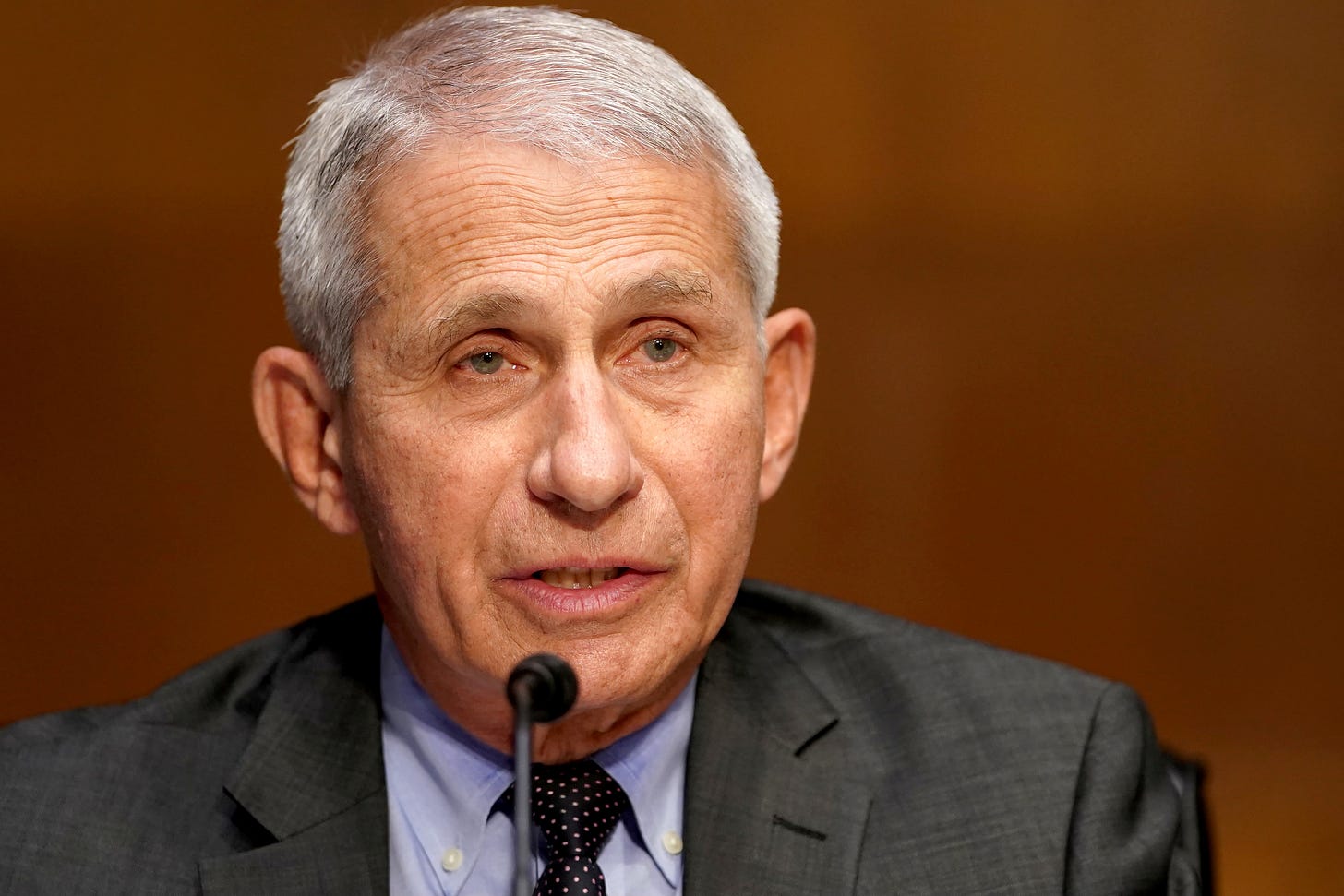Freedom Trust
Self-governing citizens tend to trust one another and not those in government. Submissive subjects trust those in government, who don't trust the subjects. Civic submissiveness is a bad relationship.
The Signers of the Declaration of Independence concluded with a famous and solemn pledge—their lives, fortunes, and sacred honor. This was no small matter. What they were calling “revolution” was, from the British point of view, treason against the Crown and punishable by death. Yet, the Signers stood strong and launched the greatest experiment in freedom the world has witnessed, a movement held together by a powerful kind of social and political glue: Trust.
The pledge offered by the Signers in the Summer of 1776 was not a promise to God, nor to fellow citizens. The pledge they made was to each other. They knew, every one of them, that if some broke the trust when the going got tough—and the going was about to get very tough!—others would likely break it too, and the revolution would fail. Betraying their mutual trust would likely mean that each would die in vain and freedom would have to wait for another time and place. But they honored their trust, at great cost in blood, money, and suffering.
Our freedom today—or what remains of it—is the legacy of their remarkable loyalty to one another.
Without mutual civic trust, there would have been no American Founding. Freedom, after all, requires that citizens trust each other enough to allow each to govern himself, to make his or her own choices in life, to run his business as he pleases, to raise and educate one’s children as one sees fit, responsibly, and to enjoy the successes or suffer the consequences that follow.
Live and let live is the attitude of free men and women, an attitude rooted in trust.
The Founders understood that free self-governing citizens have an important reason to trust each other: None of us, as ordinary citizens, has any legal power to confiscate the property or violate the rights of other citizens. I have no legal power to take what belongs to you or command how you must live; you have no legal power to take what belongs to me or command how I must live.
Neither you nor I pose the threat of legalized force to each other. That’s why we can trust each other. Should either of us steal from the other or violate each other’s rights, we do so in violation of the laws. The criminal and civil codes exist precisely so that justice can be restored when a citizen behaves unjustly toward fellow citizens.
There is, however, one group of people who do possess and exercise legalized force: Those within the government We The People ordained and established. They have a monopoly on the legal power to confiscate your property—including the money you earn—to prohibit you from doing things you want to do, to command that you do things you don’t want to do, and to punish you with prison or even legalized execution should you fail to comply with their rules, laws, and regulations.
That is precisely why, the Founders argued, we ought not trust those in government. That is precisely why We The People ratified a constitution that spells out the limited and few powers we have delegated to those in government. As Thomas Jefferson put it:
[F]ree government is founded in jealousy, not in confidence; it is jealousy and not confidence which prescribes limited constitutions, to bind down those whom we are obliged to trust with power….[Regarding those with government] power…bind [them] down from mischief by the chains of the Constitution.
In sum, freedom, the virtues required to establish and sustain it, and the human flourishing that results from it, require that citizens trust one another while viewing those in positions of government power with great distrust.
In our modern, progressive United States, a majority of citizens have reversed this formula. They now trust those in positions of government power—especially the millions of unionized, unelected bureaucrats—and they don’t trust each other.
This new cultural and political arrangement isn’t altogether new. It began nearly a century ago, during FDR’s New Deal in the 1930s and 40s. It’s been getting worse ever since.
Yet, there’s a problem that even die-hard progressives have a hard time swallowing.
The progressive bureaucracy cannot exist without the power of issuing and enforcing regulations, similar to the edicts of medieval kings. And every regulation differs from laws in a decisive way: The premise of every regulation is that you are guilty until you prove your innocence. Further, you prove your innocence by demonstrating to bureaucrats that you are in compliance with their regulations. And you demonstrate that you are in compliance over and over and over, without end.
Should you fail to show you are in compliance just once—even though you’ve harmed no one, and violated no one’s rights—you can be fined; you can lose your business or professional license; you can face financial ruin and the loss of your liberty.
In short, bureaucratic regulations are premised on distrust and suspicion. The government that millions of progressives now trust doesn’t trust you. The whole modern bureaucratic state is built on a foundation that citizens should trust those in government because citizens cannot and should not trust each other.
At the same time, those in government don’t trust ordinary citizens. The elite political and bureaucratic class assume you are too stupid, too dishonest, or both, to be left alone to govern yourself. You cannot be trusted.
Is there any other relationship in which you would choose to be part knowing that the other person greatly distrusts you, is deeply suspicious of you, and demands that you prove repeatedly that you are in compliance, including detailed reports of where you’ve been, what you’ve done, and how you’ve spent your own money?
Of course not.
Let us, then, rebrand the cause of liberty not as conservative or progressive issue, but as an issue of trust. Let us put the principle of freedom in the context of trust within a relationship, a subject everyone understands.
Let us suggest to our fellow citizens who want limited, constitutional government and individual freedom a new way of thinking and talking by framing freedom in terms of civic trust. Let those who disagree explain why they are so distrusting.
And, they are. Every progressive politico who wants more regulations and more bureaucrats to enforce them distrusts you and your fellow citizens. Let’s provide cameras, microphones, a stage, and spotlights for progressives to explain why we should trust them when they don’t trust us.
Every time someone proposes additional regulations or expansion of government bureaucracy, let us counter with a new message: Bureaucratic regulation is synonymous with distrust. The very concept of regulation, to repeat, is that those in government assume you’re guilty of some wrong before you’ve done anything at all.
Freedom lovers should reclaim the mantle of trust—trust in each other and trust in freedom. Like an organization or foundation formed as a trust, we few, we modern dissidents for liberty, should become the new freedom trust. Like the brave souls of 1776 who had the strength to trust one another with their lives and everything else of value to them—at a moment when they could not guarantee victory, they could only deserve it—let us offer trust to fellow citizens who will trust us. Let us muster the inner courage to be trusting, to be vulnerable, to live and let live as free men and women and free fellow Americans.
Let those who oppose freedom show the world the distrust, suspicion, fear, pettiness, envy, and desire for control, that consumes them and fuels everything they do.







